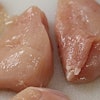
France’s strategy to vaccinate farmed ducks against highly pathogenic avian influenza (HPAI) virus is reported to be a success so far, and running ahead of schedule. Over the past 2-3 weeks, just two more outbreaks in poultry have been confirmed across Europe, and the disease situation has been declared “resolved” in three countries. However, ongoing cases in wild populations represent a continued threat to human health, according to a new study from the food safety agency.
As France passed the half-way point in its year-long HPAI strategy earlier this month, the country’s agriculture minister has welcomed the progress achieved so far as a success.
Minister March Fesneau highlighted that the national vaccination campaign was unprecedented. He acknowledged the engagement and participation of the administration and the various sectors in this progress. In the months to come, he committed to maintaining vigilance, and efforts to continue with the vaccination strategy.
Following devastating losses to HPAI in recent years, France began a targeted HPAI vaccination campaign in October of last year. Administration of the vaccine is mandatory for commercial duck flocks across mainland France.
Latest update from the French agriculture ministry puts the number of ducks that have received a first dose of vaccine at more than 26 million (as of April 2). A second dose has been administered to over 21 million birds, in progress that is ahead of schedule.
In combination with the application of biosecurity measures and a lower viral pressure than in previous years, the ministry reports that the vaccination program has contributed to a significant drop in the number of HPAI outbreaks in France. Compared with 315 outbreaks in the 2022-2023 season, just 10 have been confirmed in France since the fall/autumn.
2 European nations record new outbreaks in poultry
As of April 5, 16 countries in the region have together recorded 135 HPAI outbreaks in commercial poultry flocks since the start of 2024.
This is according to the Animal Disease Information System from the European Commission (EC), which monitors the disease situation in European Union (EU) member states and adjacent countries.
Compared with the previous edition dated March 22, the outbreak total has risen by two. This is the result of a ninth outbreak in Bulgaria, and a first of the year for The Netherlands.
Highest national total since January 1 is 55 recorded by Moldova, followed by Poland. Neither country has added to its total since early March.
In a separate category of “captive birds” the EC System records HPAI outbreaks in non-commercial poultry, zoos and similar premises.
Seven European countries had registered a total of 46 outbreaks affecting these populations in 2024 (as of April 5). No new cases have been reported since mid-March.
Based on official notifications to the World Organisation for Animal Health (WOAH), three European states have officially declared that the HPAI situation in their respective poultry sectors have been “resolved” over the past 10 days.
These self-declarations followed seven confirmed outbreaks in this population in Denmark since last fall/autumn, six in Great Britain, and 31 in Poland.
In The Netherlands, the agriculture ministry lowered the HPAI risk level for poultry from moderate to low at the end of March, based on advice from an expert panel.
With the exception of a few areas of particularly high poultry density, the nationwide order for mandatory housing of poultry — in place since November of last year — has been lifted.
Minister Piet Adema said this change will come as good news for poultry owners whose hobby and commercial birds can again access outdoor ranges.
Continued rise in cases among wild birds in Europe
Latest update of the EC’s System indicates that HPAI virus continues to circulate widely across the European continent in wild birds.
For 2024, a total of 373 outbreaks have been registered with the EC System in this population by 25 countries (as of April 5).
Compared with the previous update dated March 22, this is an increase of 14 outbreaks, of which nine were detected in Germany. One further case was confirmed by each of Belgium, Denmark, France, Moldova, and Romania.
Furthermore, additional cases have been registered with WOAH over the past 10 days by Latvia, Moldova, The Netherlands and Norway.
EFSA study explores HPAI risk to human health
“One Health” measures have the potential to mitigate the risk of avian influenza (AI) viruses adapting to humans and other mammals. These aim to focus on limiting exposure and preventing spread, according to a new report published by the European Food Safety Authority (EFSA).
Supporting these conclusions, EFSA states that AI viruses are still prevalent in European wild bird populations, causing significant mortalities, and viral transmission occurs between birds and mammals.
As a result of this transmission, AI infections have been confirmed in fur animals in the region, as well as more widely in other species — most recently in U.S. dairy cattle and other animals.
As the viruses continue to evolve, there is potential for strains to emerge that are better adapted to mammalian transmission.
For EFSA, key options to reduce this risk include enhanced surveillance of both people and animals, and greater collaboration between the veterinary and medical sectors. It also urges the enforcement of biosecurity on farms, reducing contact between wild and domestic animals, and avoiding poultry and fur farming in areas that attract wild waterfowl.
Furthermore, EFSA introduces the option to consider AI vaccination of poultry as a disease prevention measure.
View our continuing coverage of the global avian influenza situation.

















